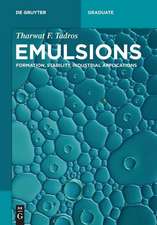Radar Absorbing Materials: From Theory to Design and Characterization
Autor K. J. Vinoy, R. M. Jhaen Limba Engleză Paperback – 21 sep 2011
Preț: 995.73 lei
Preț vechi: 1214.29 lei
-18% Nou
Puncte Express: 1494
Preț estimativ în valută:
190.53€ • 199.46$ • 157.65£
190.53€ • 199.46$ • 157.65£
Carte tipărită la comandă
Livrare economică 07-21 aprilie
Preluare comenzi: 021 569.72.76
Specificații
ISBN-13: 9781461380658
ISBN-10: 1461380650
Pagini: 208
Ilustrații: 208 p.
Dimensiuni: 155 x 235 x 11 mm
Greutate: 0.32 kg
Ediția:Softcover reprint of the original 1st ed. 1996
Editura: Springer Us
Colecția Springer
Locul publicării:New York, NY, United States
ISBN-10: 1461380650
Pagini: 208
Ilustrații: 208 p.
Dimensiuni: 155 x 235 x 11 mm
Greutate: 0.32 kg
Ediția:Softcover reprint of the original 1st ed. 1996
Editura: Springer Us
Colecția Springer
Locul publicării:New York, NY, United States
Public țintă
ResearchDescriere
Due to its extensive applications in stealth technology, much of the research effort in radar absorbing materials (RAM) has remained classified. As is the wont with classified topics, it has resulted in much awe and unfounded speculation. The aim of this book is to demystify this topic. The book in hand is concise but complete in itself. The attention of the readers is first drawn towards the historical evolution of RAM to emphasize that the elementary principles of electromagnetics lead to the fundamental concepts of RAM. These also form the basis for further mathematical analysis and design of RAM. The performance plots for the various RAM designs, to the extent possible, are taken with respect to power reflection; this should facilitate comparison of their relative performances. In order to further induce the reader to take the first step towards RAM design, we have included the relevant computer codes in a companion diskette. This would enable the reader to try out elementary designs on his own. * .EXE files should facilitate ready execution of codes on most DOS based computing platforms. The corresponding source codes with comments are also included as * .FOR files. The reader may wish to modify some of these codes for examining RAM design algorithms further. We welcome comments from the reader on these codes.
Cuprins
Preface. 1. Introduction. 2. Fundamental Electromagnetic Concepts for RAM. 3. Mathematical Analysis for RAM on Surfaces. 4. Electromagnetic Design of RAM. 5. Absorber Characterization Techniques. 6. Identification and Applications of RAM. 7. Trends in RAM. List of Symbols. Suggestions for Further Reading. Author Index. Subject Index.







